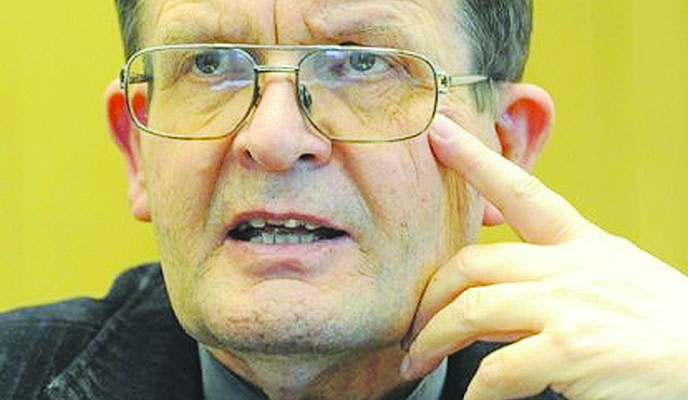
Guest Column: Fr Oskar Wermter SJ
ARE we in control of time, or is time controlling us, from hour to hour, day to day, and year to year? This is a time of waiting, of expectation and preparation for a child. Is he actually on his way? Yes, he is, but he comes in his own good time. We live in time, but time is not under our control.
At laying the dead to rest, we used to pray for the one among the mourners to follow the friend, brother or mother just buried. Who will it be? When will it be? How much time has he or she left? People do not really like to ask “morbid” questions like that. But can we avoid them? Are they not obvious?
A woman, who is expecting, is counting the months and weeks, finally the days and hours. Can she work out a “time table” that is reliable, a plan to tell her what is to come? Today everything can be manipulated, organised, managed. We talk about the wisdom of “time management”. (Or is it folly? )
So many of us go buying and selling on the “labour market”. What is it we are selling? Time! The time of our lives, unpredictable, uncertain. Ourselves actually. If we have sold our working time, we are tied down. Time no longer belongs to us. It belongs now to the one who has hired us and wants value for money.
We no longer belong to ourselves. Some of us would pay soothsayers or prophets (but real prophets are not for hire!) heaps of money if they could tell us the truth of events to come which they can’t and won’t.
Time is flowing fast like a river, a stream which does not stop. Like the Rhine, or the Zambezi, the Nile, the Amazon or Congo it ends in the sea or ocean. Like them, we cannot give the stream of our life a different direction. We are carried by our fate to an end predetermined by the Lord and Creator. Or so it would seem. This kind of “time” is called “chronos” in Greek.
But life is not monotonous. It has its surprises, its sudden turns and unexpected vistas. There is more than floods and flowing streams ever the same. There are sudden crises and challenges, as well as opportunities never thought of nor hoped for. In every life of individuals, communities, nations, there is a very special, extraordinary time, a chance given just once, but perhaps never again an opportunity you must grab now, or you will have missed it for good.
- Chamisa under fire over US$120K donation
- Mavhunga puts DeMbare into Chibuku quarterfinals
- Pension funds bet on Cabora Bassa oilfields
- Councils defy govt fire tender directive
Keep Reading
The ancestors knew this long before us. They used to say, “Chawawana batisisa mudzimu haupe kaviri” (“What you have, hold on to it, the spirits will not give twice”). In biblical Greek we call this “kairos” (see Mark 1:15; Revelation 1:3): the time is fulfilled! Christian churches in South Africa recognised this challenge during the final phase of the anti-apartheid struggle. They produced the “Kairos-Document”. It was a unique time, moment and opportunity to call out, “Now or never!” This was their “moment of grace”!
Maybe when the leaders of the forces of liberation accepted a certain compromise at Lancaster and thereby made Independence possible, this was their “kairos” and “moment of grace”. When a young man finally meets the woman of his life maybe that is his “kairos”, which may not come again.
If only our leaders would have the blinkers removed from their eyes and grab the opportunity (kairos) of creating a united, peaceful and blessed country! Making use of the right, the opportune moment is not an act of arrogance, pride and triumph. We are not gods, we have no divine privileges. At this “moment of grace” we accept humbly that we are poor servants of one another and of the entire nation. This is not a time to take advantage of and get rich by. This is not a time of grabbing, but of receiving a blessing for the good of even “the least of our brothers”.
And maybe our “medicine men” could also learn to jump across their own shadow and recognise that their justified interest in well-equipped hospitals can be reconciled with achieving the common good for all of us. This “moment of grace” will be the last chance to resolve current contradictions and put an end to the present hopeless stalemate. Only the humble find the way forward.
Now is the time (‘kairos’). Don’t waste it. “The spirit does not give twice”.
Fr Oskar Wermter is social commentator and he writes in his personal capacity











